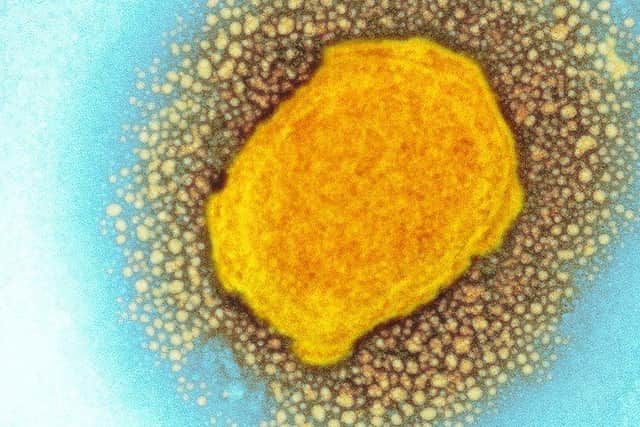Fourth case of monkeypox confirmed in Scotland
and live on Freeview channel 276
All four people are receiving treatment appropriate to their condition in line with nationally agreed protocols and guidance, Public Health Scotland (PHS) insisted.
Close contacts of the cases are being identified and provided with health information, advice and, where appropriate, a vaccination.
Advertisement
Hide AdAdvertisement
Hide AdThe case announced on Monday is the fourth confirmed in Scotland since May 23.


Dr Nick Phin, PHS director of public health science, said: “Anyone with an unusual blister-like rash or small number of blister-like sores on any part of their body, including their genital area, should avoid close contact with others and seek medical advice if they have any concerns.
“Public Health Scotland continues to work with NHS boards and wider partners in Scotland and the UK to investigate the source of these infections.
“We have well-established and robust infection control procedures for dealing with such cases of infectious disease and these are being strictly followed and the overall risk to the general public is low.”
Advertisement
Hide AdAdvertisement
Hide AdMonkeypox is a viral infection usually found in west and central Africa.
Health officials said the west African strain recently detected in the UK is generally a mild, self-limiting illness, spread by very close contact with someone already infected and with symptoms of monkeypox.
Most people recover within a few weeks.
PHS said it has been working closely with NHS boards and other partners to raise awareness of the disease and ensure services are ready to respond.
It is also continuing to work with the UK Health Security Agency, Public Health Wales and Northern Ireland HSC Health Protection Agency.
Comment Guidelines
National World encourages reader discussion on our stories. User feedback, insights and back-and-forth exchanges add a rich layer of context to reporting. Please review our Community Guidelines before commenting.